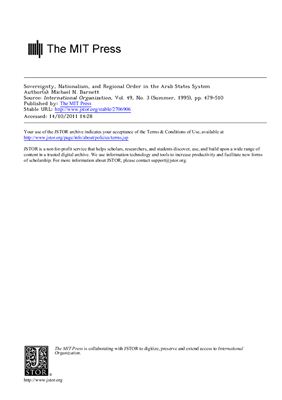IInteational Organization, Vol. 49, No. 3 (Summer, 1995), pp.
479-510
In the first address to the French Parliament by a U.S. President since Woodrow Wilson, in June 1994 President Bill Clinton spoke of the growing challenge posed by nationalism to inteational order. In decided contrast to Wilson, who came to Paris after World War I to champion the idea of national self-determination, Clinton arrived after the cold war to wa how nationalism undermines inteational stability. At present, nationalism is less identified with cultural autonomy, democracy, and sovereignty than with chauvinism, expansionism, and assaults on the Westphalian order.
In the first address to the French Parliament by a U.S. President since Woodrow Wilson, in June 1994 President Bill Clinton spoke of the growing challenge posed by nationalism to inteational order. In decided contrast to Wilson, who came to Paris after World War I to champion the idea of national self-determination, Clinton arrived after the cold war to wa how nationalism undermines inteational stability. At present, nationalism is less identified with cultural autonomy, democracy, and sovereignty than with chauvinism, expansionism, and assaults on the Westphalian order.

